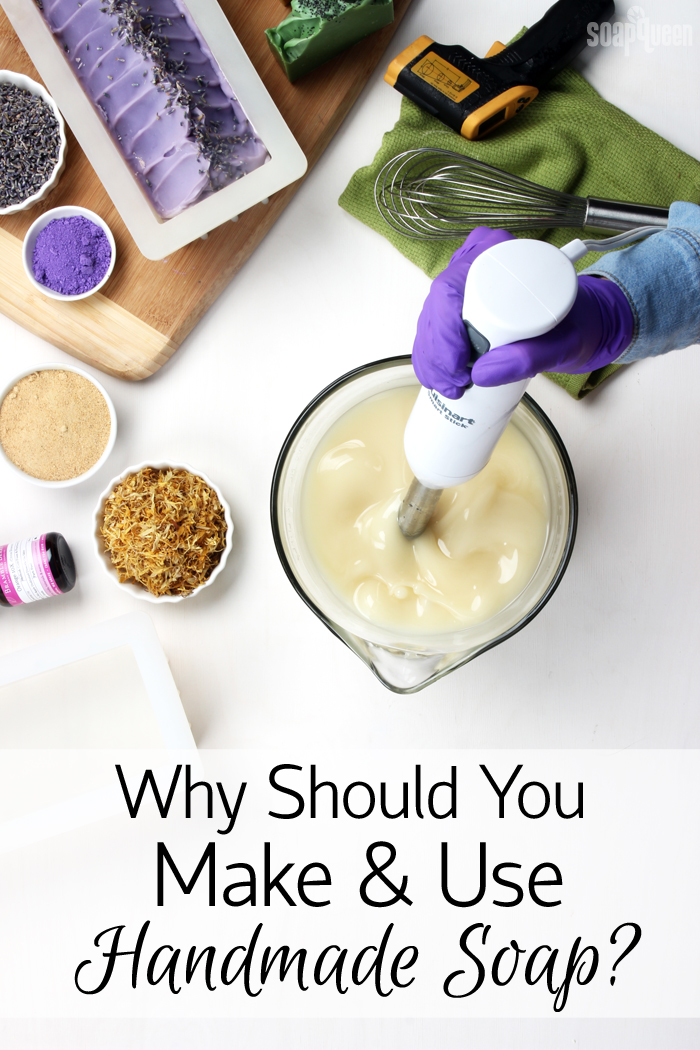
A large majority of people have never used handmade soap before. In fact, most people have never used soap before. Wait…what?
If you take a look at commercial products sold in stores, it’s likely you won’t find the term “soap” on the package. Commercial soap sold in stores is often made with chemical detergents, hardeners and synthetic lathering agents. Some of these ingredients can be drying or irritating on the skin. On the other hand, handmade soap created with oils, liquid and lye does not contain these harsh ingredients and qualifies as ‘soap.’
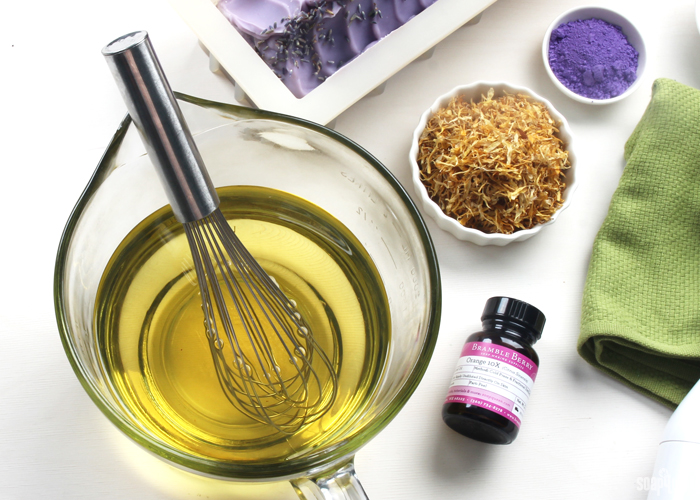
The ingredients in some commercial bars on the market make them ineligible to be called and advertised as soap. According to the FDA website, a product is defined as soap when:
- the bulk of the nonvolatile matter in the product consists of an alkali salt of fatty acids and the product’s detergent properties are due to the alkali-fatty acid compounds, and
- the product is labeled, sold, and represented solely as soap [21 CFR 701.20].
Handmade soap also contains glycerin. Glycerin is a humectant that attracts moisture from the air to the skin. It’s produced naturally during the soapmaking process. It’s one of the things that make handmade soap so amazing! Some commercial soaps remove the glycerin from the bars and sell it to make lotions and creams. Without glycerin, commercially prepared soap isn’t nearly as skin loving, and can leave the skin feeling dry. Learn more about glycerin here.
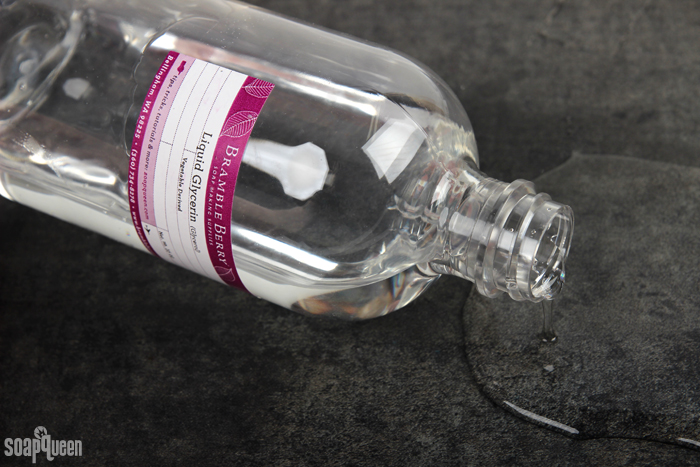 Glycerin is a natural humectant that is found in handmade soap. Glycerin attracts moisture from the air and keeps skin hydrated.
Glycerin is a natural humectant that is found in handmade soap. Glycerin attracts moisture from the air and keeps skin hydrated.
Cold or hot process soap is made with skin-loving oils, such as coconut oil, olive oil and avocado oil. This combination of oils is what makes each bar completely unique. The great thing about making and using your own handmade soap is that you can customize it to feel exactly how you like it. Love a bubbly and stable lather? Add some castor oil! Prefer a mild, small lather? Use a high percentage of olive oil.
Now I often get the question, “Isn’t homemade soap made with lye? I don’t want to put lye on my skin.” Completely agree! I certainly don’t want to put lye on my skin either. =) When calculated correctly, there is no lye leftover in handmade soap. Once the lye and oils emulsify and combine, the saponification process begins. This process turns the lye and oil into soap.
In the final bar, no lye actually comes into contact with your skin because there is no lye in the bar – it’s now soap! Pretty cool, huh? If you’re a visual person, check out this Soap Queen TV video to learn a little bit more about the saponification process. All true soap is made with lye to start with, even clear melt and pour soap (commonly referred to as ‘glycerin soap’).
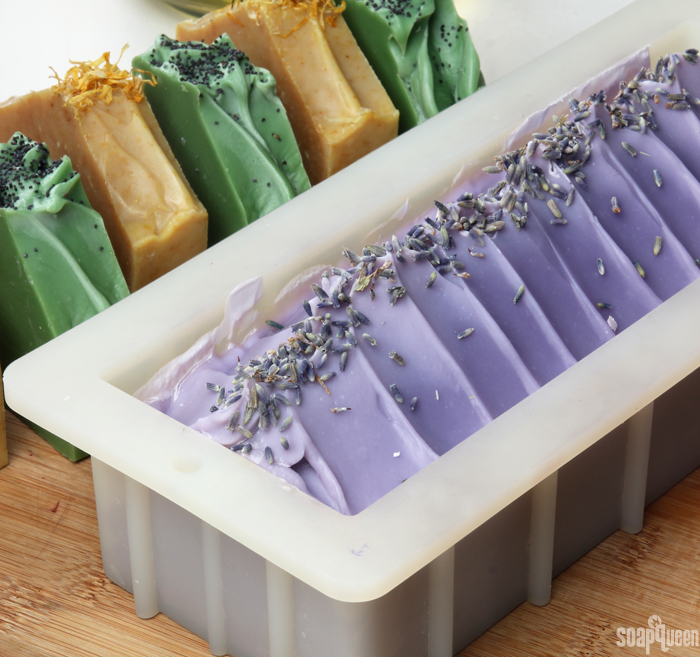 Handmade soap can be customized any way you like with colors, fragrance and the skin-loving oils and butters.
Handmade soap can be customized any way you like with colors, fragrance and the skin-loving oils and butters.
In addition to choosing soaping oils and butters for your skin, you can further customize your bars with exfoliants, fragrance, color and more. This is especially important if you prefer to only use natural ingredients. Handmade soap is a great way to use essential oils derived from plants and natural colorants like clays. Other fun natural ingredients, like milk and purees, can also be added to handmade soap. You won’t find those quality ingredients in your bar of store bought soap. This kind of customization is a beautiful way of expressing yourself, your personality and your values. It’s a consumable art form that is fantastic to use, sell or give away as gifts.
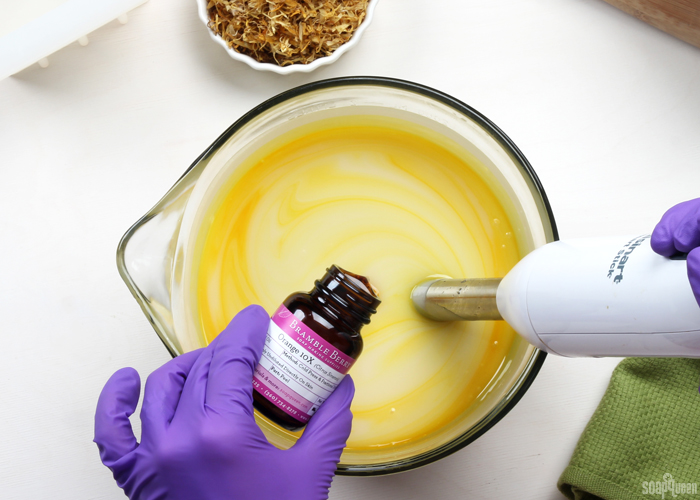 Handmade soap is great if you prefer natural ingredients, like essential oils.
Handmade soap is great if you prefer natural ingredients, like essential oils.
Now, I know I might be a little biased. I have been making soap for more than 20 years and now own a soapmaking supply company. But it’s something that I feel passionate about. I have seen soapmaking change the lives of so many people. For some, making handmade soap is a creative outlet and way to de-stress. For others, making and selling handmade soap has provided additional income that allows them to feed their families. And last but not least, users of handmade soap have happier and more moisturized skin. To me, that’s enough reason to make your own soap, or support artisan soapmakers! Oh, and did I mention it’s really, really, really fun to make soap? =)
If you haven’t tried making your own soap yet, what’s holding you back?
